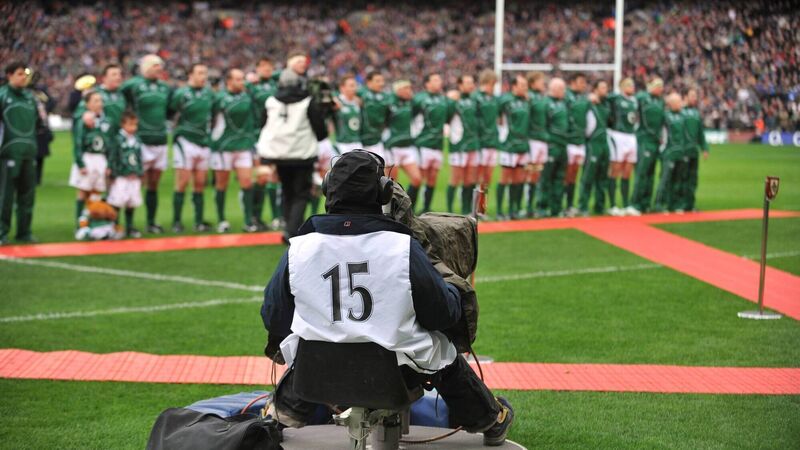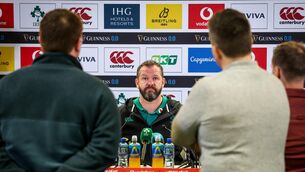Paul Rouse: Six Nations must be careful what it wishes for - Pay-per-view carries hefty price

A TV camera records the Ireland team during the national anthem ahead of a 2008 Six Nations game against Italy at Croke Park. Picture: Brendan Moran
For a year and more, the story that CVC Capital Partners – a private equity firm – planned to buy a substantial share in the Six Nations has been widely circulating.
CVC have already bought a 27% stake in Premiership Rugby and a 28% stake in the PRO14 tournament; they are now about to take 14.5% of the commercial rights for the Six Nations.










